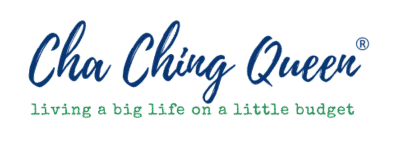Many of us need to use debt early in life to create the future life we want. But that doesn’t have to mean staying in debt forever. The key is having a plan if you get into debt early in life. Greg’s story is an excellent example of making those investments early in life, financed by debt, and having the plan to pay them off.
Greg is a fellow St. Louis native and has spent 22 years as a Chartered Financial Analyst (CFA) in the Financial Services industry. Greg’s story shows how debt can be used as a tool early in our lives to build a debt-free life in the future. At one point, Greg accumulated more than $800,000 in debt while building a real estate investment portfolio.
Young Debt-Free Family Interview with Greg from Cha Ching Queen

Start by telling us about yourself. Please include any details you feel comfortable sharing about your family, job situation, income level, and amount of debt paid.
I am 42. I recently retired from my 20+ year career in Financial Services to spend time with my wife and three kids aged four and under. I am somewhat part of The Great Resignation, although I was planning to retire in my 40s ever since I was a teenager. Working during the pandemic only accelerated my decision. I bought eight houses with $800 out of pocket in my early 20s. I had over $800k in debt. From age 20-30, I never made more than $60k in my day job.
I created a budget and a financial plan, and I stuck with it. I am not frugal. I live in a decent house in a nice part of St. Louis. We spend on what makes us happy, but I never spend a penny more than that. I would love a Tesla. But I know it will make me $10k happier and not $100k happier, so I do not buy one. My wife and I now live off of mostly passive income. We have a few rental houses, and we bought ChaChingQueen.com. The site is a lifestyle blog about living a happy and healthy life on a budget.
What inspired you to pay off your debt? Did you have a specific moment where you decided to make it a goal to pay off your debt?
I look at debt differently than most. I see time as a liability and an asset. I took out a lot of debt at an early age to buy my time back when I was older. I am older now. I also look at debt for what it is: someone else’s money. I feel morally obligated to pay back other people’s money. I also look at funding retirement as a liability. I am adamant about maxing out 401ks. I felt that not maxing out my 401k was stealing from future me. I don’t steal.
Were there any apps, tools, or websites that were especially helpful in paying down debt?
Knowing how to pay down debt was never an issue for me. My goal at a very early age was to be debt-free. I am a Chartered Financial Analyst. My 22-year career was in Financial Services. My roles, in general, were around tools that helped Financial Advisors and designing managed account programs. That said, I used excel for my personal financial planning (I should probably publish my templates). The tools we designed for Financial Advisors were always incomplete and didn’t look at the entire financial picture.
I know well that the large firms are too afraid to look at the entire financial picture (spending, taxes, assets held at other firms, etc.) As far as websites go, I started this journey very young. I am 42 now, but I was a teenager when I developed my plan. This was before websites. I would go to the library and read Carleton Sheets. I also read “The Millionaire Next Door.” It changed my life. Over the years, I’ve enjoyed Dave Ramsey. I agree with him in principle, but I don’t think there is one path to financial independence. That’s why I love the Financial Pilgrimage Interview series.
There are so many ways to achieve financial independence. But Ramsey is great about simplifying the message of being smarter with money. So many people need that shake.
How did you stay disciplined throughout the process to pay down your debt?
My plan required taking out a lot of debt. I was in my early 20s, making 25k a year at my day job, and I had $800k+ in debt. I knew the math was in my favor, and other people were paying the debt off. I knew if I hung in there for a few decades, I would be fine. But it was hard mentally. 9 out of 10 days, I knew I was fine. But those other days, it was tough to know how much I owed banks. Discipline comes with trusting the plan. If you don’t trust the plan, you have the wrong plan.
What advice would you provide to other young families overcome by the stresses of debt?
You’re young. Time is a beautiful thing when it comes to money. So slow down, take steps to chip away at the debt, and come up with a plan. You already know that sticking to a budget is challenging. It’s a habit you aren’t used to. But it isn’t nearly as bad if you step back and analyze where your money goes. Even if you never get in the habit of using a budgeting app or excel, just knowing where your money is spent can trigger a behavior change.
What was the most challenging part of your journey to becoming debt-free?
Relationships. In my 20s, it was incredibly confusing to girlfriends and their parents. They thought I was taking on a lot of risks.
How has becoming debt-free changed your family’s life? How do you expect it will impact your family’s life in the future?
I am 42. My wife is 38. We have three kids aged four and under. We no longer need to work. Hopefully, being present and engaged parents will lead our children to be better people than if they were only around.
What are your plans for your family after becoming debt-free?
The only debt we have left is some of our mortgage debt. We have the assets to pay it off, but at 2.3% interest, it just isn’t worth it. Once it’s paid off, we will probably do what I’ve always done, spend wisely and not more.
Are you pursuing (or have you reached) financial independence?
We have been financially independent for a few years now. We live off of mostly passive income.
Is there anything that you haven’t yet covered that you’d like to share?
If I had to do one thing differently, it would simply be nicer to people. It’s also hard to step away from a high income at work, but freedom is worth it. I also wish more people knew what is possible if they make money, spend less, and invest the rest. Another thing is it’s lonely. There aren’t too many people that can relate. People are either skeptical of my situation, think I am rich, or jealous. The jealousy one is interesting. No one was jealous of my $800k debt as a 27-year-old or when I was dealing with tenant issues. There’s something important there. It’s focused on your journey. Do it for you. If you are trying to gain wealth for validation, what’s the point. You’ll never be happy. Live for you.
Where can we learn more about your story?
My wife and I bought ChaChingQueen.com, a lifestyle blog about being happy on a budget, primarily for passive income. We also started ClothDiaperBasics.com for something to do when the kids are in school in a few years. We still own a few rental houses, but we sold most of them in 2021 because of a shortage of housing inventory. Also, follow us on social media under the handle @ChaChingQueen. Additionally, Greg’s site featured a recent article from Financial Pilgrimage on the themes from 25 young debt-free family interviews.

Mark is the founder of Financial Pilgrimage, a blog dedicated to helping young families pay down debt and live financially free. Mark has a Bachelor’s degree in financial management and a Master’s degree in economics and finance. He is a husband of one and father of two and calls St. Louis, MO, home. He also loves playing in old man baseball leagues, working out, and being anywhere near the water. Mark has been featured in Yahoo! Finance, NerdWallet, and the Plutus Awards Showcase.


